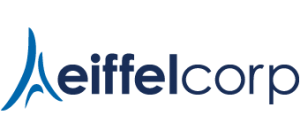
Choosing the right Learning Management System (LMS) is a pivotal decision that requires careful consideration of critical features and functionalities. Here are a few key points to consider when you navigate the process of choosing your ideal LMS.
1. Customisation for Relevance:
Ensure your LMS allows content customisation to keep learning materials relevant. Accessibility is essential – choose an LMS that supports various abilities, technologies, screen sizes, and input devices. Look for interactive activities and seamless integration with organisational tools.
2. Vendor Evaluation:
Start by researching potential vendors. Assess their reputation, track record, customer feedback, and industry presence. Consider cloud-based vs. self-hosted options based on your organisation’s size, IT resources, scalability needs, and security concerns. Engage key stakeholders in vendor demos or trials to ensure alignment with your needs.
3. Budget Considerations:
When it comes to pricing models, weigh the options carefully. Subscription-based models offer continuous access with ongoing fees, similar to Software as a Service (SaaS) systems. Alternatively, one-time licensing fees provide long-term use without recurrent charges. Open-source LMS options offer flexibility, customisation, and freedom from vendor dependency.
4. Security and Data Privacy:
It is critical to prioritise data security and adherence to privacy regulations. Look for LMS platforms with robust security features, like Moodle LMS, which follows a ‘security by design’ philosophy and practices responsible disclosure to maintain platform integrity.
5. Implementation & Onboarding:
Effective implementation and onboarding are crucial. Ensure a smooth transition by migrating data, tailoring settings to organisational needs, and providing a concise training plan for users to navigate the LMS efficiently.
6. Integration & Compatibility:
Choose an LMS that seamlessly integrates with other tools and is compatible across various devices and browsers. Integration with the Student Information System (SIS) is vital for higher education institutions.
7. User Interface and Experience:
Prioritise an intuitive user interface and seamless navigation. Customising the LMS to reflect your organisation’s branding fosters a familiar and cohesive learning environment.
8. Support and Training:
Responsive customer support and comprehensive training resources are crucial for a smooth user experience. Ensure your LMS provider offers dedicated technical support and training programmes to maximise the platform’s potential.
9. Decision Making:
Balance features, functionality, and budget when making decisions. Analyse data, user feedback, and performance metrics to ensure the LMS aligns with your current needs while allowing for scalability and adaptability.
10. Ongoing Monitoring & Improvement:
Selecting an LMS is an ongoing process. Monitor performance, seek feedback, and adapt to evolving technology and learning trends. Regular assessment of performance metrics and industry trends ensures your LMS stays aligned with organisational goals.
Eiffel Corp: Your Moodle Expert
For a comprehensive Moodle experience, consider Eiffel Corp. Our services include custom implementation, hosting, technical support, and strategic consultancy. We focus on user empowerment through training for administrators and educators, ensuring a seamless learning experience.
Transform your learning landscape with Eiffel Corp and advance your organisation’s education goals!





















